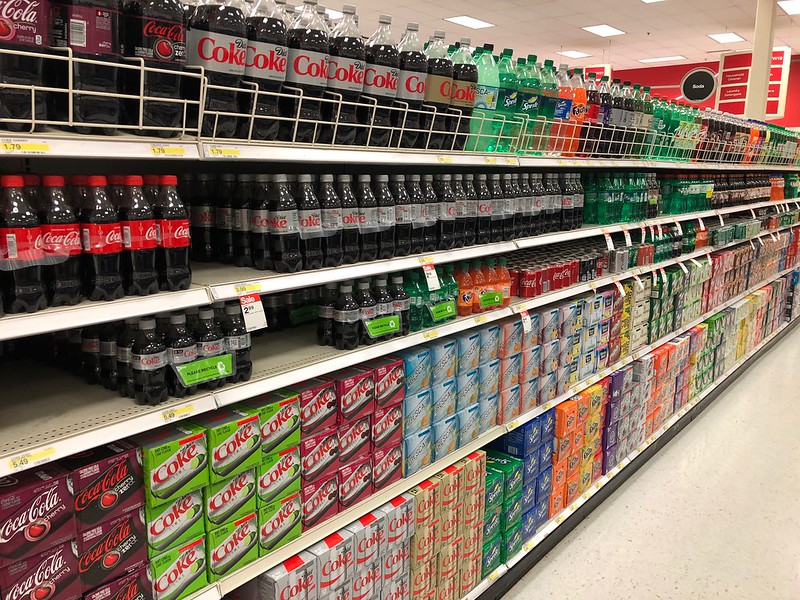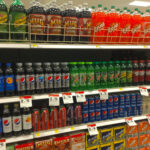
If you want to buy a soda in the city of Boulder, Colorado, you’re going to have to pay the price – and low-income residents who hope to eat healthier, will thank you for it.
Seven years after imposing a new tax on the sale of sugary drinks sold in the city, a portion of the revenue is going toward coupons that allow low-income households to purchase fruits and vegetables at local farmers markets and grocery stores, for free.
Boulder is currently accepting applications for $3.8 million in grants from the Health Equity Fund, which is where all that soda tax money goes. One program that hopes to get a share is the city’s “Fruit & Veg Program,” which provides monthly coupons to eligible residents. Households with one or two people get $40 worth of coupons each month, while households of three or more get $80. The coupons can be redeemed at one of several local independent grocery stores, farmers markets and chain stores like Kroger-owned King Soopers, and Whole Foods Market.
The Fruit & Veg Program is working its way through a $298,000 grant that it received this year, which is helping to fund healthy purchases for families who might not otherwise be able to afford fresh produce. 50 other organizations, ranging from food pantries to health care and disease prevention programs, have also received funding.
Turning some shoppers’ unhealthy purchases into healthy purchases for others, was the very goal of the soda tax when it took effect back in 2017. Boulder voters approved the Sugar Sweetened Beverage Distribution Tax, which imposes a two-cents-per-ounce excise tax on sugary drinks like soda, energy drinks and presweetened tea. While the city emphasizes it “is NOT a sales tax charged directly to the consumer” and instead targets distributors of sugar-sweetened beverages, the city acknowledges that the extra cost may well be passed along to consumers in the form of higher prices.
The dual goal of the tax is to discourage the consumption of sugary drinks, while encouraging better health by earmarking all of the revenue for “health promotion, general wellness programs and chronic disease prevention.”
That’s unlike some other cities that have imposed similar taxes, which aim to achieve one goal but not necessarily the other. Philadelphia, for example, approved what was then a first-in-the-nation soda tax back in 2016, charging distributors 1.5 cents per ounce. The tax has since brought in roughly half a billion dollars in revenue – but that money is being used to fund schools, neighborhood parks, recreation centers and libraries, with the rest going into the city’s General Fund to cover miscellaneous expenses. None of the money is specifically earmarked for anything related to public health.
Nevertheless, discouraging unhealthy choices by making them cost more is a good thing, right?
Not necessarily. A report issued earlier this year found that soda taxes are something of a double-edged sword. The JAMA Health Forum analyzed the effectiveness of the taxes in Boulder and Philadelphia, along with similar ones subsequently implemented in Seattle, San Francisco and Oakland, California. It found that the taxes were indeed mostly passed on to shoppers – 92% of the time – resulting in an average price increase of 33%.
And the higher prices have had the expected deterrent effect. JAMA found that purchases of sugary drinks in these cities have declined 33% – exactly the percentage of the overall price increases.
To JAMA, this was great news. Imposing similar taxes “across the U.S. would likely generate significant population health benefits and medical cost savings,” its report concluded.
To the affected cities and programs who’ve come to count on the extra revenue, it’s a bit murkier. Less consumption of sugary drinks will make people healthier, sure. But it means less tax revenue, which means less funding for the grants and expenditures the money has been going toward all these years. “The better this tax does in making people healthier, the worse it will do” in funding city initiatives, Urban-Brookings Tax Policy Center communications director John Buhl told the Philadelphia Inquirer.
To New York University nutrition and food studies professor Marion Nestle, though, it’s worth it. “What this study shows is that these taxes are having the effect that they were intended to have,” she said. “If it’s something that discourages consumption of full-sugar beverages, it’s a really good idea.”
For a group like Boulder’s Fruit & Veg Program, though, it could mean far less funding in the years to come, and far fewer coupons to help low-income shoppers afford healthy produce. While their mission may be admirable, their method of relying on some shoppers’ unhealthy purchases to fund other shoppers’ healthier choices may prove to be precarious.
So if you happen to find yourself in Boulder someday, you might want to quench your thirst with a sugar-free drink in order to save some money. Or, if you opt for something sweet instead, that just might prove to be the healthier choice – maybe not for you, but for others who will be eating better as a result.
Image source: Scott McLeod










